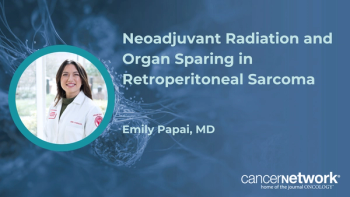
Xiuning Le, MD, PhD, Discusses Who May Benefit Most From Tepotinib in Advanced NSCLC
Xiuning Le, MD, PhD, spoke about which patients with advanced non–small cell lung cancer with high MET-amplification could benefit most from tepotinib based on molecular markers.
CancerNetwork® spoke with Xiuning Le, MD, PhD, at the
Transcript:
Targeted therapies, especially a TKI [tyrosine kinase inhibitor] using tepotinib as an example, for [patients with] high MET amplification in NSCLC, we think there is an efficacy signal clearly from cohort B of the VISION trial. From the translational or biomarker analysis from this group of patients, although small, we started to understand a little better [which] patients can benefit the most. If the tumor has a focal MET amplification, if the patient has a relatively low ctDNA burden and tumor burden, those are the characteristics that predict a good response. On the flip side, we also started to discover that MET non-focal amplification, MYC amplification, RB1 mutation, and TP53 mutations are bad players and dictate [whether] a patient’s tumor [will] potentially respond. This trial is informative, not only showing the preliminary efficacy but also guiding us forward to understand [which] patient can potentially benefit the best from this TKI approach.
Reference
Le X, Paz-Ares LG, Meerneeck JV, et al. Clinical response to tepotinib according to circulating tumor DNA biomarkers in patients with advanced NSCLC with high-level MET amplification detected by liquid biopsy. J Clin Oncol. 2022;40(suppl 16):9121. doi:10.1200/JCO.2022.40.16_suppl.9121
Newsletter
Stay up to date on recent advances in the multidisciplinary approach to cancer.







































